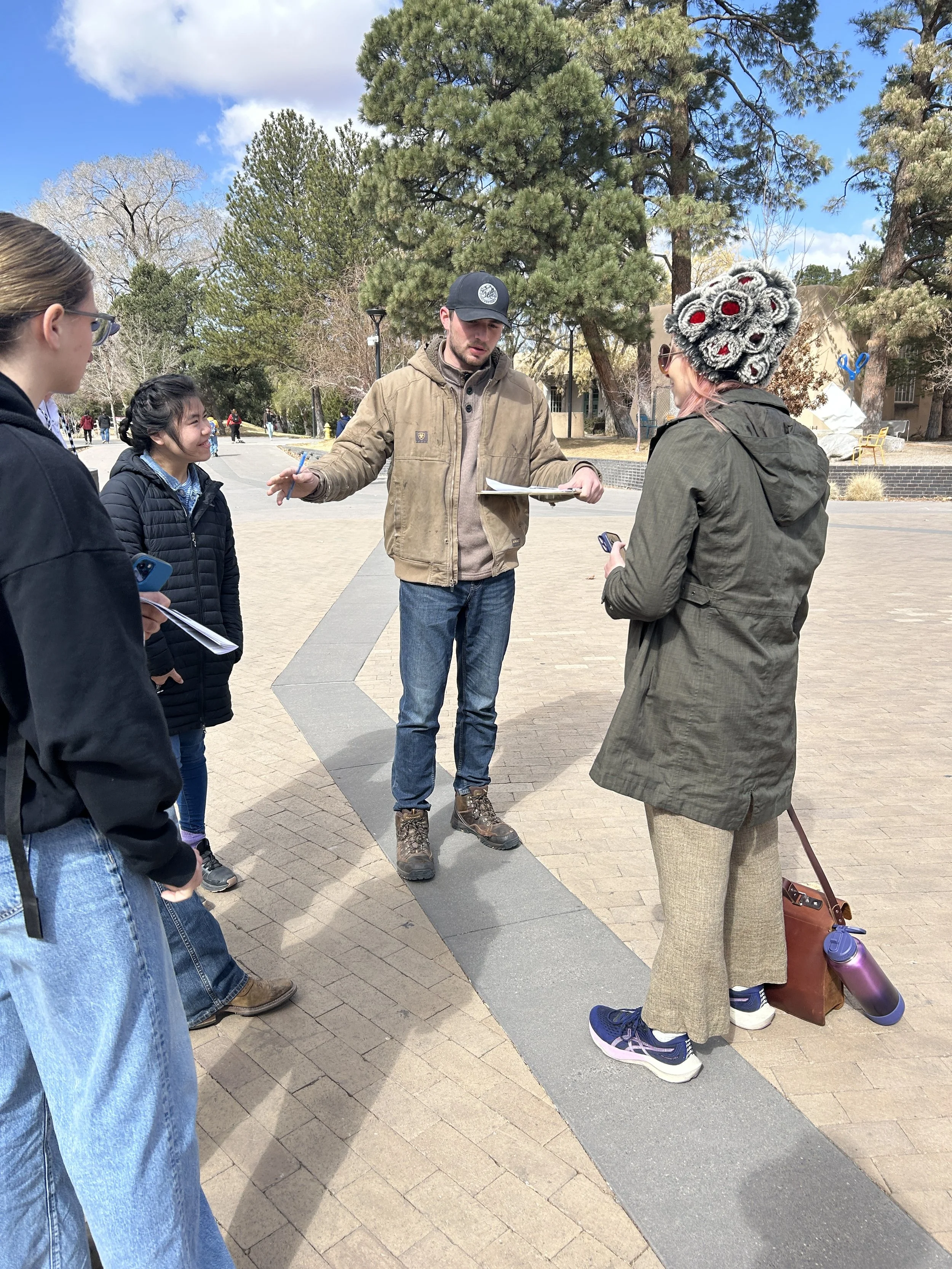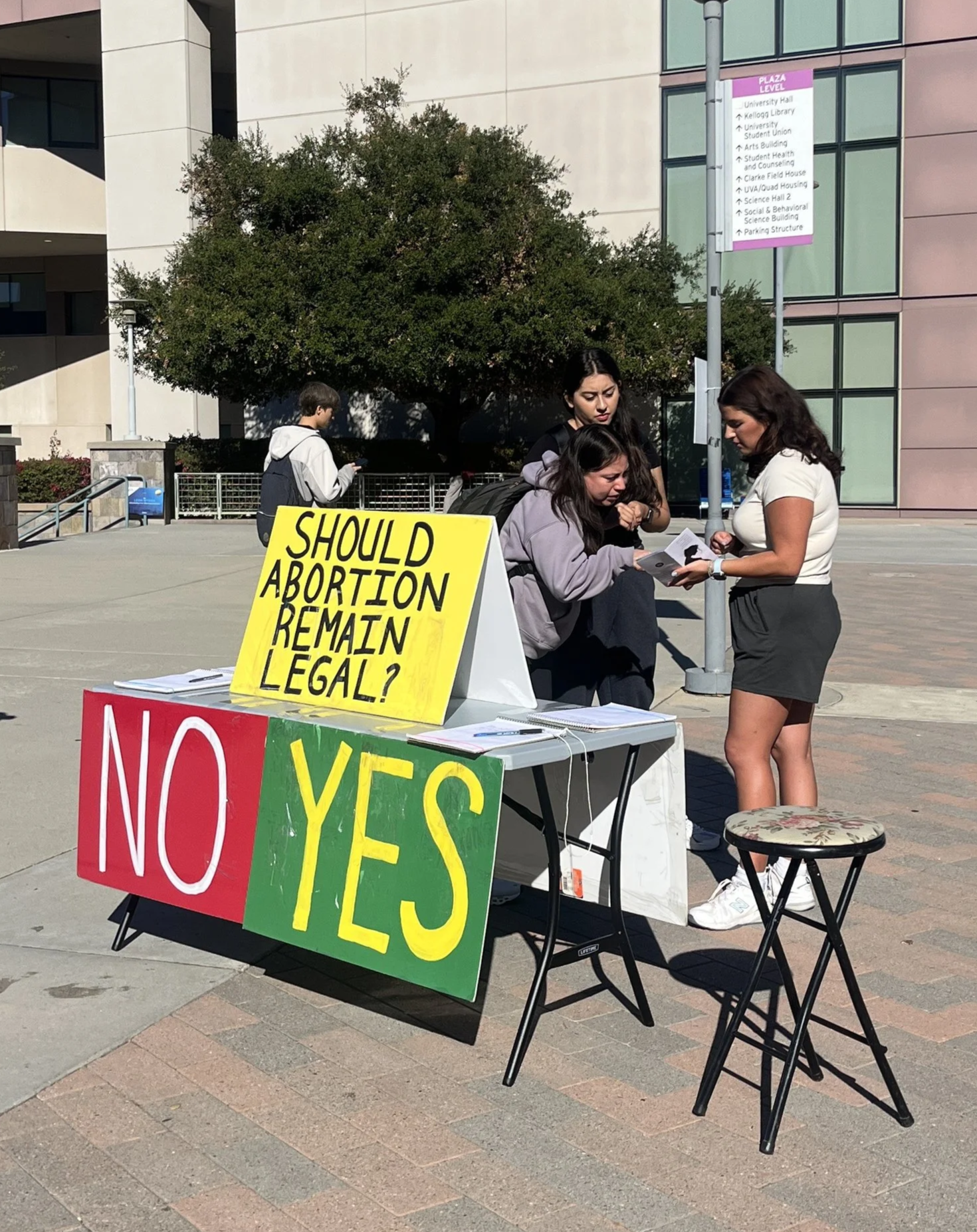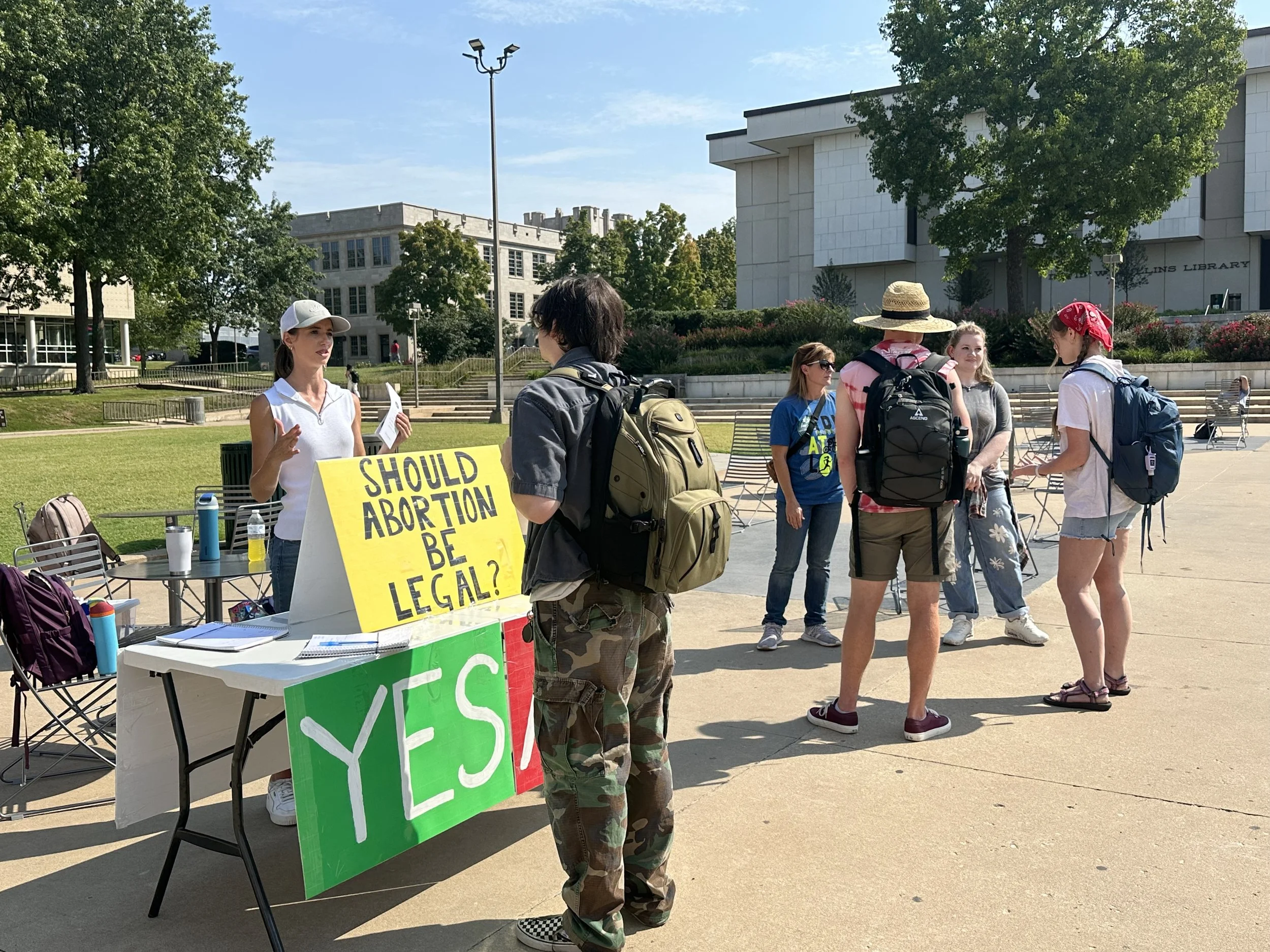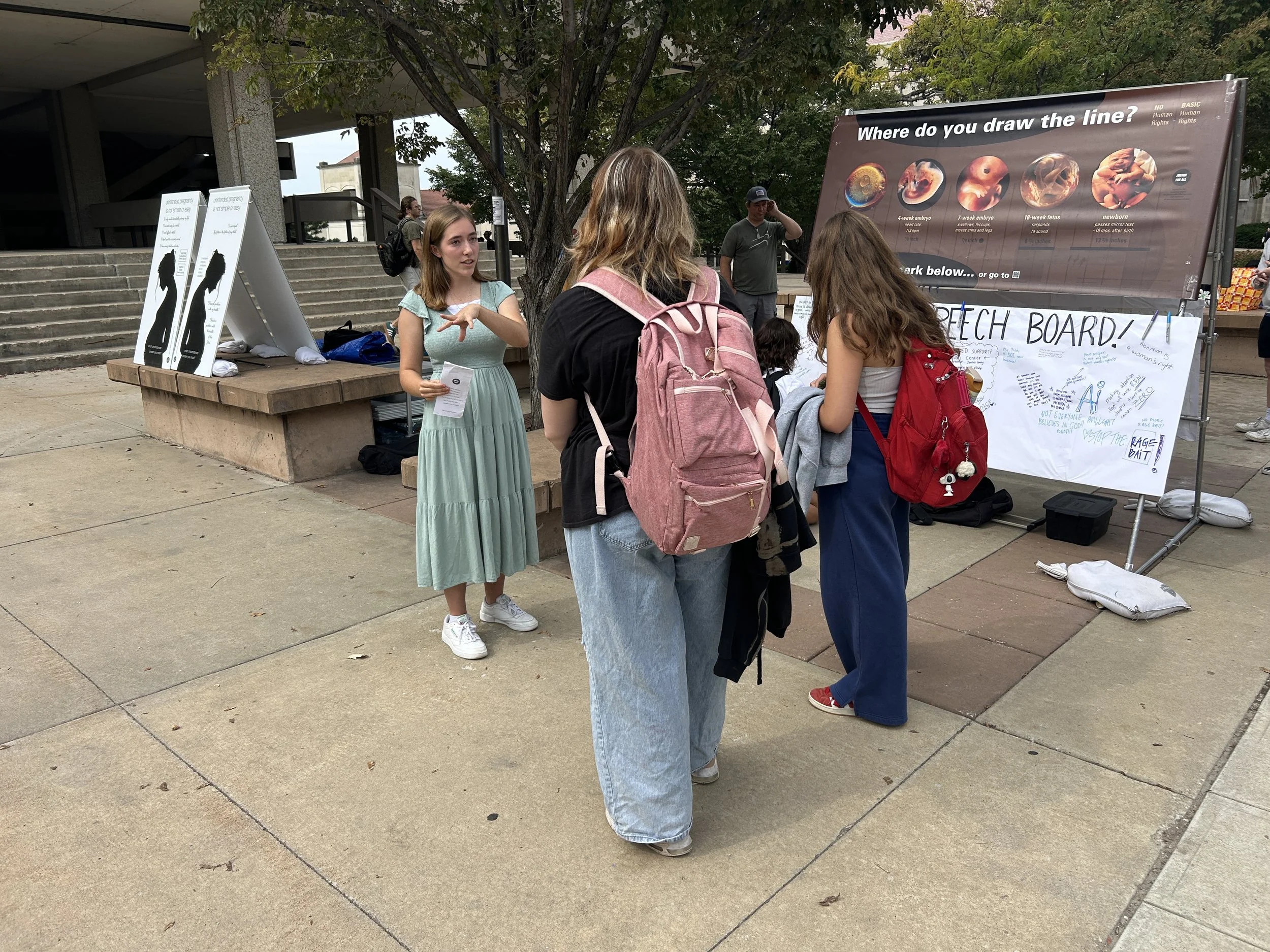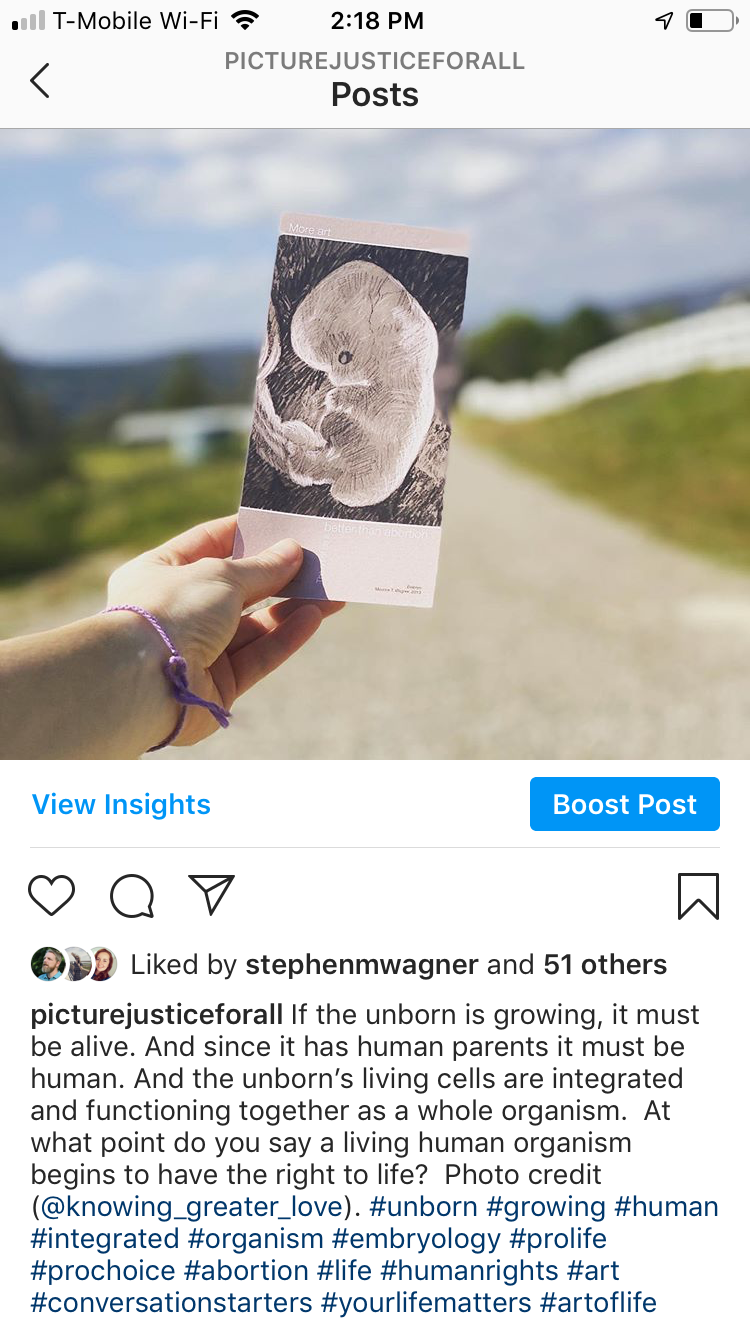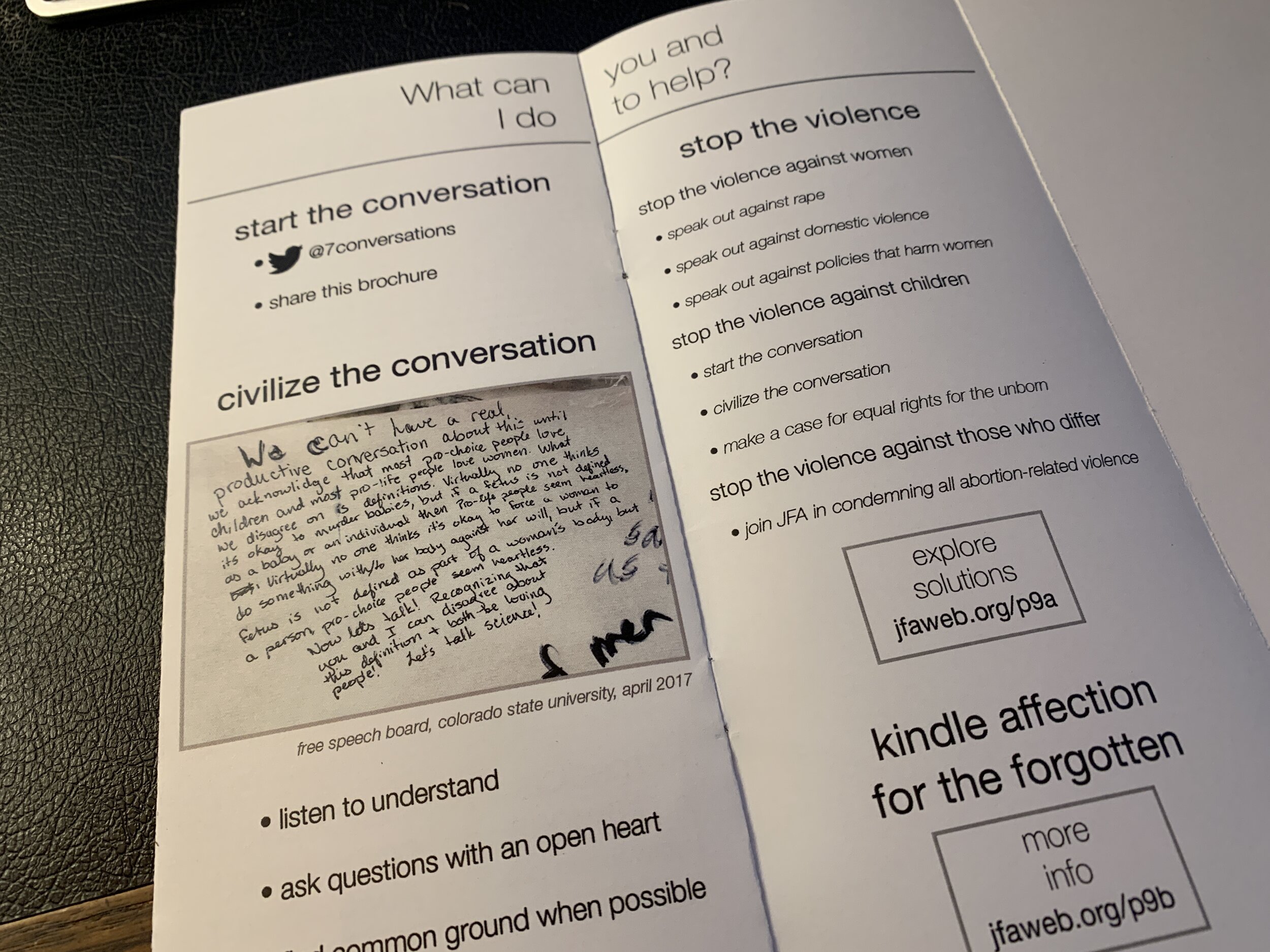Recently, I was scrolling through the comments on a pro-life Instagram post, and one comment caught my eye:
Commenter: Yes. Preach. Don’t let immoral, irresponsible, angry pro-choicers tell you otherwise. All they can do is get triggered and attack you.
Me: I have met pro-life people who are all those things and pro-choice people who are none of them. It doesn’t help this important discussion to stereotype either group. Let’s reach out in love to those who disagree rather than making assumptions about them.
Commenter: Never met one tolerant pro-choicer on Instagram. NEVER. Just go to pro-life pages and see pro-choicers’ comments.
Rebecca Hotovy (left, sitting) talks to a KU student at JFA’s University of Kansas outreach in March 2018.
This commenter illustrates a mindset we can all fall into from time to time. It’s the “us versus them” mindset, the mindset that all pro-choice people act that way and believe those things. This mindset destroys our ability to have an openhearted dialogue with pro-choice people.
Are all pro-choice people angry? Are all pro-choice people immoral? Are all pro-choice people irresponsible?
No.
Every pro-choice person is an individual with a unique story. Many people are pro-choice out of a deep sense of compassion for women. Others are pro-choice because they have been hurt. Still others are simply misinformed. Lumping all of these individuals together and assuming that they are all angry, immoral, and irresponsible only destroys our ability to reach out to them.
We get angry with the pro-choice movement for the dehumanization of unborn children. But often we are guilty of the same dehumanization directed not at unborn children but at pro-choice people. We may not use derogatory terms such as “parasite” to refer to the unborn, but we use derogatory terms to refer to pro-choice people.
“We get angry with the pro-choice movement for the dehumanization of unborn children. But often we are guilty of the same dehumanization directed not at unborn children but at pro-choice people.”
Former JFA staff member Cheryl Kaye Davis (right) talks to a UCLA student at a JFA outreach event in May 2016.
If we ever hope to see a change, if we ever hope to bring an end to abortion, we are going to have to reach out to pro-choice people, and that starts with seeing them as real, valuable, individual human beings.
That is why at Justice For All we so often talk about the Three Essential Skills. We believe that by listening to understand, asking questions with an open heart, and finding common ground when possible, we can have open, friendly dialogue with pro-choice people. It is this kind of dialogue that has the potential to change hearts and save lives. This is the kind of dialogue we have had on college campuses all over the country and are now having on Instagram, Facebook, and other social media platforms. (We’re still hoping we can return to college campuses this fall to engage students in dialogue in person. Please pray with me for this!)
I pray that you will join us in being an advocate of the gospel and of the value of every human life.

